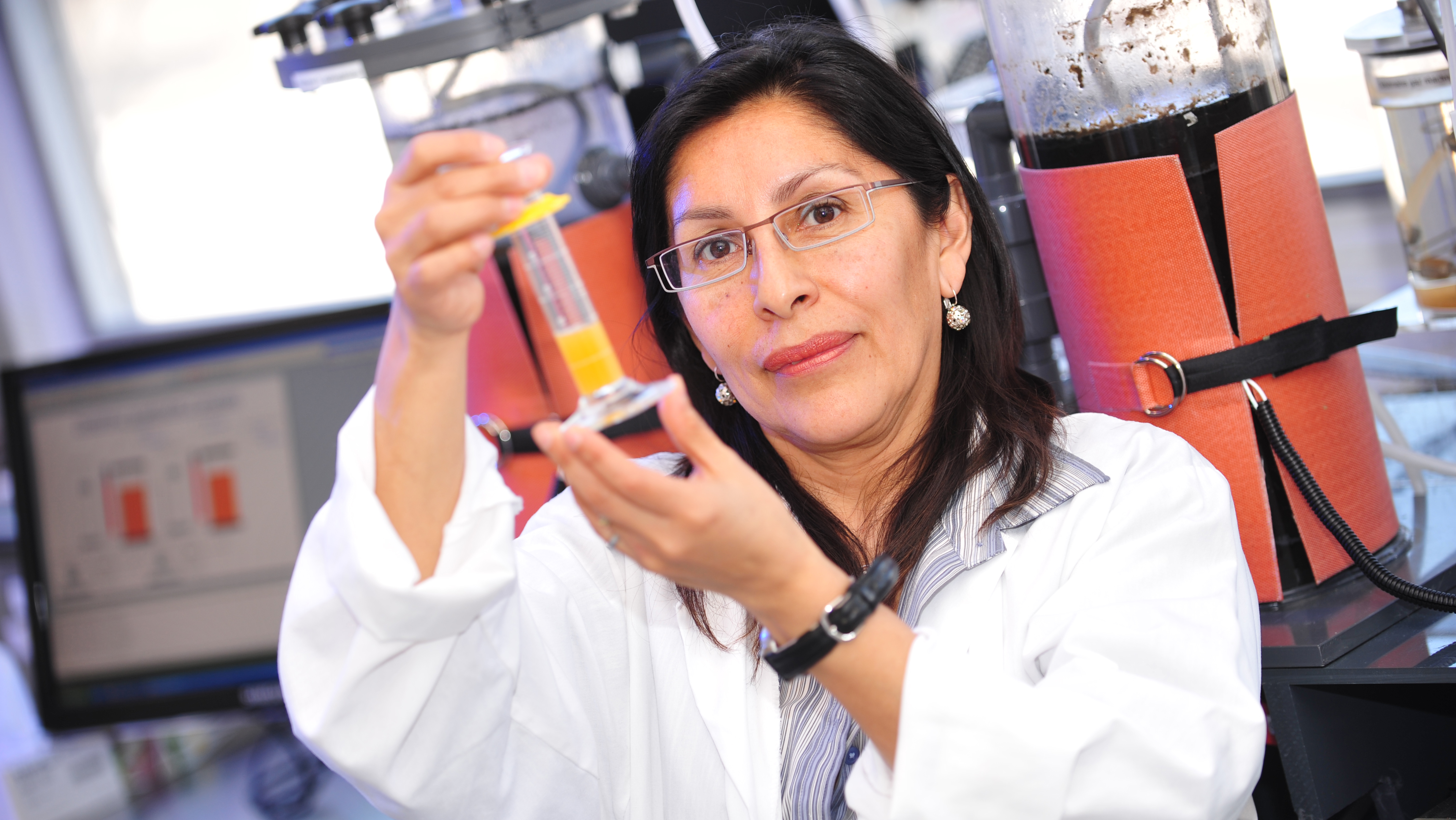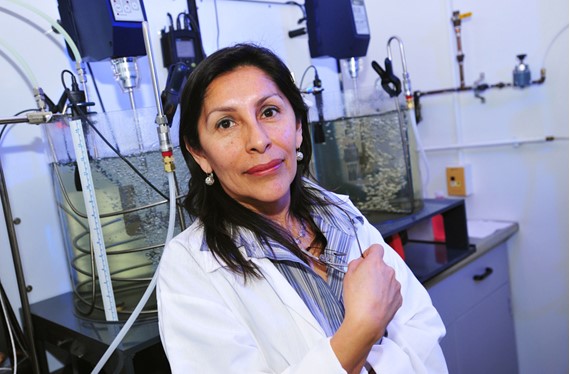Senator Rosa Galvez celebrates Science Literacy Week

Science Literary Week, held from September 17 to 23, is a weeklong celebration of science and space in Canada, so SenCAplus asked Senator Rosa Galvez to reflect on her past career as a scientist and explain how her background gives her a particular perspective in her work at the Senate.
Senator Galvez is an expert in pollution control who has offered advice on waste management and soil decontamination throughout her career. She has a PhD in environmental engineering from McGill University and she headed the civil and water engineering department at Université Laval.
How did you first get interested in science?
When I was 10 or 12 years old, I had my first individual assignment that I had to do about a subject that I cared about. I chose pollution in Mexico City.
I had to search to know more about the subject because people were not talking about pollution at that time. So, I had to do research and I said, “OK, I like this, having to go to the library, having to read about things not many people are talking about.” I remember I went to talk to somebody at the municipality in my town just because I wanted to know what happened with the waste that was collected in our houses.

How would you encourage Canadians to be more science literate or to be conscious of science in their daily lives?
If you think about it, everything that exists in our constructed world is an inspiration of nature.
We have lost a bit of this curiosity for nature. But when we go back to nature, when we get close to nature, we start seeing the colours, the textures, the functions. The octopus and its capacity to simulate the colours of its environment, it has so many applications in so many areas.
When we are curious about nature I think, naturally, we are inclined to learn and know more and see the practical aspects. Through evolution, we can see nature is so innovative. Children and teenagers can see the links between observation, nature, technology and that is science. Science is the discipline that links nature with our curiosity, with our skill for building, into knowledge development.
How has your background in science influenced the way you approach policy issues as a senator?
We want to take positions that are based on real information, real facts — because we know that when we take positions based on facts and evidence or data, we know that it’s better, it’s going to give better results than if they are based on subjectivity, or if they’re going to be based on ideology, or based on personal interests.
I bring logic when we reflect and study bills. I bring soundness. I bring scientific data or technical experiences and results. In practice, for example, every time I do a speech or put out a statement I am always very careful to cite references. In my speeches, there is always one page of references. It is not only my word, it is that of many scientists and studies behind the facts.
That helps you gain respect and have an audience and people listening to what you’re saying because you’re making logical statements and you’re building in blocks — exactly like we do in science.
Related articles
Tags
Committee news
Senator Rosa Galvez celebrates Science Literacy Week

Science Literary Week, held from September 17 to 23, is a weeklong celebration of science and space in Canada, so SenCAplus asked Senator Rosa Galvez to reflect on her past career as a scientist and explain how her background gives her a particular perspective in her work at the Senate.
Senator Galvez is an expert in pollution control who has offered advice on waste management and soil decontamination throughout her career. She has a PhD in environmental engineering from McGill University and she headed the civil and water engineering department at Université Laval.
How did you first get interested in science?
When I was 10 or 12 years old, I had my first individual assignment that I had to do about a subject that I cared about. I chose pollution in Mexico City.
I had to search to know more about the subject because people were not talking about pollution at that time. So, I had to do research and I said, “OK, I like this, having to go to the library, having to read about things not many people are talking about.” I remember I went to talk to somebody at the municipality in my town just because I wanted to know what happened with the waste that was collected in our houses.

How would you encourage Canadians to be more science literate or to be conscious of science in their daily lives?
If you think about it, everything that exists in our constructed world is an inspiration of nature.
We have lost a bit of this curiosity for nature. But when we go back to nature, when we get close to nature, we start seeing the colours, the textures, the functions. The octopus and its capacity to simulate the colours of its environment, it has so many applications in so many areas.
When we are curious about nature I think, naturally, we are inclined to learn and know more and see the practical aspects. Through evolution, we can see nature is so innovative. Children and teenagers can see the links between observation, nature, technology and that is science. Science is the discipline that links nature with our curiosity, with our skill for building, into knowledge development.
How has your background in science influenced the way you approach policy issues as a senator?
We want to take positions that are based on real information, real facts — because we know that when we take positions based on facts and evidence or data, we know that it’s better, it’s going to give better results than if they are based on subjectivity, or if they’re going to be based on ideology, or based on personal interests.
I bring logic when we reflect and study bills. I bring soundness. I bring scientific data or technical experiences and results. In practice, for example, every time I do a speech or put out a statement I am always very careful to cite references. In my speeches, there is always one page of references. It is not only my word, it is that of many scientists and studies behind the facts.
That helps you gain respect and have an audience and people listening to what you’re saying because you’re making logical statements and you’re building in blocks — exactly like we do in science.


